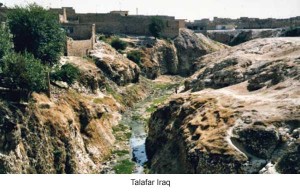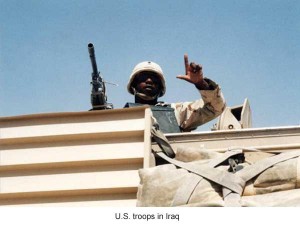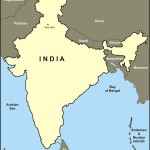This is a first hand account of a journalist, Scott Taylor, about his tryst with death at the hands of Islamic extremists in Iraq about five years back. The religious and social dynamics in the country has not changed. Islamic extremists continue to stymie the evolution of Iraq into a stable and modern nation-state. In September 2004, Scott Taylor embarked on his twentieth trip into war torn Iraq to report on the deteriorating situation in the northern city of Tal Afar. The tensions between the resistance and U.S. forces that Taylor had observed on his previous visit to this Turkmen enclave only two months before, had erupted into a full-scale uprising. The initial media reports were sketchy and contradictory at best. But Taylor felt that his close association with Turkmen officials in the embattled city would allow him to make a more accurate assessment of the situation. What he did not know was that the perpetrators of this rebellion were in fact Islamic extremists, a chapter of Ansar al-Islam. As a result, he found himself taken hostage by mujahadeen and forced to endure five days of beating and torture. This is his story.
“You are spies, and now you are prisoners.”
7:16 p.m., 7 September, Tal Afar Iraq. It was nearly dusk when we arrived at the city outskirts of Tal Afar. On the main highway to Mosul, about a dozen Iraqi policemen at a checkpoint were supervising a frightened exodus of civilian refugees. For the past week there had been media reports of escalating violence between resistance fighters and U.S. troops in Tal Afar, and already the many of the residents had fled the embattled city. From American services in the Mosul Airfield, I had learned earlier that day that a major U.S. offensive was about to begin. The Americans had reinforced their local garrison with an additional battalion of armour and infantry and I was advised that within days, the U.S. military was going to clean house in Tal Afar.
It was my intention to enter the city before it was shut down, and then send reports about the civilian casualties and possible humanitarian crisis that would result from a major battle.Admittedly, it had not been easy to find a taxi driver willing to take me to Tal Afar. All the drivers in Mosul had been warned that the mujahedeen were in control of the city and that it was too dangerous. One Kurdish fellow disagreed with his colleagues and said that their fears were unfounded. With daylight fading, we quickly made a bargain on the fare and set off.
Tal Afar is an almost entirely Turkmen enclave in northwestern Iraq. I had just finished writing a book about the history of these Turkish speaking indigenous Iraqis. As part of my research, I had visited Tal Afar in June and felt that if I could just reach my known contacts, I would be safe among friends. I knew there would be some risk involved particularly once the Americans attacked but I planned to observe the fighting from a safe house, well away from any actual combat.
The sight of U.S. paid Iraqi police forces monitoring traffic had seemed like a good sign that things were still under control, despite the recent fighting. As I did not have an exact address for my previous contact, I approached a police checkpoint to ask for assistance. When I asked them to be taken to Dr. Yashar, they recognized his name as a prominent local Turkmen official and eagerly nodded in the affirmative. A senior policeman was summoned and he instructed me and Zeynep Tugrul, a Turkish journalist filing her own reports for Sabah, a daily national newspaper, to climb into a nearby car containing four masked gunman. As we clambered into the backseat, one of the gunmen said in excellent English, We will take you to Doctor Yashar please do not be afraid.I had presumed that these men were some sort of special police force our own Canadian counter terrorists teams often wear ski-masks so I had no immediate cause for concern. However, as soon as we entered Tal Afar, I saw that the streets were full of similarly masked resistance fighters armed with Kalashnikov rifles and RPGs (rocket-propelled grenades). I suddenly realized we were in the hands of the resistance. Still believing that they were taking me to my friend’s house, instead we were ushered into a small courtyard outside a walled two story building. There were about a half dozen armed men inside none of them smiling.
As soon as the metal door clanged shut behind us, the English speaking leader said, “You are spies, and now you are prisoners.” All of our cameras, equipment and identification were taken from us and we were told to sit on a mat with our backs to the wall. “The Americans will attack soon and I have to see to my men,” said our captor. “I will deal with you when I return.”
Shortly after nightfall, they brought a platter of food into the compound, and in what would soon become a routine pattern, they served us first before eating dinner themselves. Admittedly I did not have much of an appetite.
“Don’t shoot him he has a son!”
The plates had just been cleared away when another car pulled up outside and four more gunmen came quickly through the door. Before I could even react, I was pulled to my feet and pressed against the wall with my hands on top of my head. Almost immediately I heard the distinct sound of a Kalashnikov being cocked about a metre behind me. In fear and shock at the realization that they were about to execute me, Zeynep screamed at them in Turkish: “Don’t shoot him he has a son!”
The outburst was enough to distract them momentarily and they began to explain to her the necessity of killing a ‘Jewish spy’. Thankfully, I had no idea what was being said. The brief discussion was still taking place when our original captor returned. Harsh words were exchanged between the two groups of gunmen, and it seemed as though a prisoner’s fate was the proprietorship of those who made the capture: The would-be executioners left.
It was at this point that Zeynep was blindfolded and taken away for questioning. The remaining guards – their ages ranging from 15 to 50 – took alternating turns between watching me and crouching behind the second floor parapet and looking in the sky for signs of the imminent U.S. attack.






